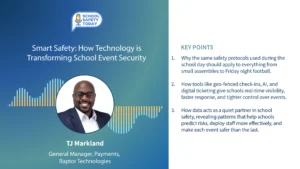Illuminate Education Unveils Research on Actual Impact of Spring School Closures
New research released by Illuminate Education indicates students in grades K-8 are experiencing universal learning losses in math and reading due to COVID-19 disruptions. Losses are consistently greater in math than reading in late elementary and middle school grades and are consistent across geographic and socioeconomic status.
“We are seeing a pervasive, negative, and universal impact on student learning due to COVID-19 disruptions, especially in math and reading,” said Dr. John Bielinksi, Sr. Dir. of Research & Development at Illuminate Education. “We’re urging educators to consider spending more time on these high-need areas. Effective remote instruction is possible to counter learning loss, and teachers will need support to make it happen.”
Thus far, the data reported indicate that school disruptions caused by COVID-19 has negatively influenced students’ learning in math and reading, with those effects being observed uniformly across subpopulations of students who completed fall screening. This conclusion is based on Illuminate Education’s original research, as well as other reports of lower reading and math scores since the pandemic began.
Effects of school closures on learning were determined by comparing growth rates using nationally representative universal screening data from Illuminate’s FastBridge platform from fall 2019 to fall 2020. To examine generalizability, researchers compared achievement levels, free or reduced lunch rates, percent minority students among schools, school classification as urban, suburban or rural, and students who tested in consecutive years to those who did not test in the fall of 2020.
Grounded in a Multi-Tiered System of Support (MTSS) framework, Illuminate Education offers the following recommendations:
- Continue to conduct screening to identify the largest learning gaps and address these through intensified Tier 1 instruction.
- Look to Benchmarks as the goal for all students to reach, while understanding that Rate of Improvement (ROI) is the key metric to focus on when conducting progress monitoring this school year, since many students will start the year significantly behind typical performance.
- Spend more time on high-need areas, such as math in Grades 2 through 8. The risk of learning loss is greater in these grades and with this subject, so it is even more critical to spend time helping students make up for the lack of math instruction that occurred as a result of COVD-19 school closures.
- Provide additional support to educators to ensure effective remote instruction is possible.
Results reported to date were largely impacted by school closures during the spring of 2020, and do not reflect the ongoing interruptions in schools and challenges with remote learning since school restarted in the fall of 2020. The uncertainty of the specific instruction provided for students during the pandemic deems it premature to draw firm conclusions about why math skills appear to be lagging behind reading as the pandemic continues.
Download the report here to view findings: No Longer a Prediction: What New Data Tell Us About the Effects of 2020 Learning Disruptions









